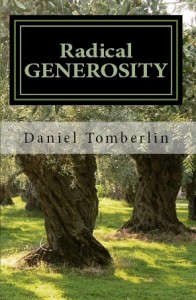 Now there was a rich man, and he habitually dressed in purple and fine linen, joyously living in splendor every day. And a poor man named Lazarus was laid at his gate, covered with sores, and longing to be fed with the crumbs which were falling from the rich man’s table; besides, even the dogs were coming and licking his sores (Luke 16:19-21; cf. 19-31).
Now there was a rich man, and he habitually dressed in purple and fine linen, joyously living in splendor every day. And a poor man named Lazarus was laid at his gate, covered with sores, and longing to be fed with the crumbs which were falling from the rich man’s table; besides, even the dogs were coming and licking his sores (Luke 16:19-21; cf. 19-31).
In much of the world the poor are beyond the gates, or live in walled camps. In the developed world, zoning ordinances keep the poor in their place. We’ve made it possible to live in comfort and easily ignore the suffering of the poor.
Prosperous Christians wear the best clothing and live in splendor in gated communities. Jesus insists again and again that life is not to be measured in terms of clothes and treasures (Luke 12:23-28). A theology that glorifies such affluence is nothing less than a false gospel. Living in luxurious splendor, when the poor suffer just beyond the gates, is an offense to the gospel.
The rich man is unnamed and disinherited, removed from the bosom of Abraham. His death reveals the poverty of his soul. The grandeur of his mausoleum cannot obscure his eternal plight – he is suffering the torment of Hades, and there will be no comfort. When he appeals for mercy, he is turned away “empty-handed” (Luke 1:53). His inheritance is an eternity of “woes” (Luke 6:24-26). “Those who close their eyes to poverty will be cursed” (Proverbs 28:27, NLT).
In the world of affluence Lazarus suffered the indignity of poverty, disease, and starvation. When Lazarus died, it is likely that there was no one to properly bury his corpse. There was no grand mausoleum to house his bones. But just as the rich man’s death revealed the poverty of his soul, Lazarus’ death reveals the promise of the gospel. Whereas the rich man was buried, Lazarus “was carried away by the angels to Abraham’s bosom” (Luke 16:22). The “bosom of Abraham” is a euphemism for paradise and signifies intimacy and inheritance. Lazarus was despised, homeless, and hungry; but he is now exalted, at home, and filled with good things (Luke 1:52-53).
Jesus was often a guest of the rich. He told one of his hosts: But when you give a reception, invite the poor, the crippled, the lame, the blind, and you will be blessed, since they do not have the means to repay you; for you will be repaid at the resurrection of the righteous (Luke 14:13-14).
This is not about inviting the poor to church. It’s about inviting them to be guests in our homes, to participate in our lives. It’s about sharing the blessings of God. The call of the gospel is to go beyond our gated communities, to take a long walk in the ghettos, and call the poor by name. No one should ever be left outside the gate of God’s house. “He who gives to the poor will never want” (Proverbs 28:27; cf. 19:17). This is the call to be generous.
